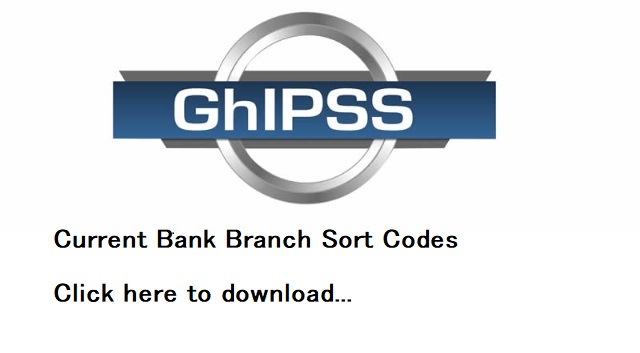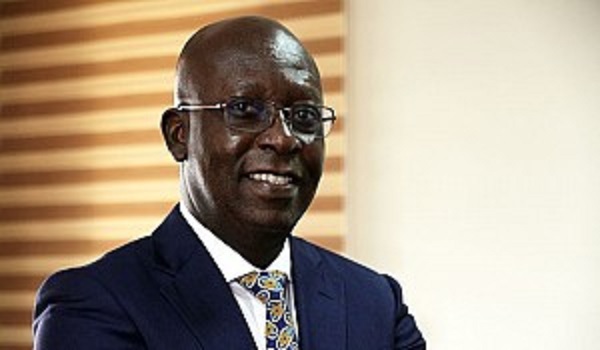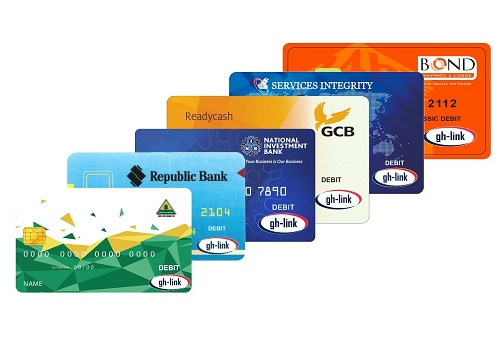GhIPSS Suggests use of Direct Debit to Collect Funds
 Organisations or service providers who collect funds from customers regularly have been urged to explore Direct Debit to ensure that they have a more efficient way of collecting payments due them from customers.
Organisations or service providers who collect funds from customers regularly have been urged to explore Direct Debit to ensure that they have a more efficient way of collecting payments due them from customers.
The Chief Executive of Ghana Interbank Payment and Settlement Systems (GhIPSS), Mr Archie Hesse, who gave the advice, said Direct Debit could help companies reduce the cost in collecting recurring payments from customers.
Organisations such as insurance companies, hire-purchase service providers and utility companies receive money from their customers regularly in the form of insurance premiums, loan repayments, subscription and bills payments.
They are normally paid in cash or cheques by their customers and it is usually cumbersome handling these forms of payments. Cheques are sometimes mixed up or defaced while cash could be pilfered or get missing. There are also reconciliation challenges. But these challenges can be avoided when the Direct Debit is used, experts have noted.
A Direct Debit is an electronic payment that allows an organisation to instruct its bank, asking it to collect an agreed amount from the bank account of a customer on an agreed date.
However, before an organisation could use Direct Debit, it must agree with the customer, so that the customer will always keep its account sufficiently funded to meet the expected deductions.
Mr Hesse said Direct Debit had been very successful in many advanced countries as the preferred form of payment for recurring bills.
It had several benefits to both the receiving companies as well as the paying customers, including allowing such recurring payments to be made automatically on the due date.
It is also safe, convenient and cost-effective for users, as it takes away the hustle of having to make such payments every time they are due.
Mr. Hesse, therefore, encouraged organisations to also take advantage of the existence of such a system in Ghana and use it to their benefit.
Probably, the biggest challenge to Direct Debit is customers keeping enough money in their account to meet their Direct Debit obligations.
Mr Hesse, therefore, advised the public that when they sign up to Direct Debit, they should do well to keep enough money in their accounts on the due dates to meet their payment obligations.
He said the practice where some people signed onto Direct Debit but fail to keep enough funds in their accounts, negatively affected a very good payment system, adding that, such attitudes should be discouraged.
Ghana has had the Direct Debit for some years now and it was introduced to provide alternative channels for making

 Accra, April 27, GNA -The Ghana Interbank Payment and Settlement System (GhIPSS) is to step up public education on quicker electronic payment channels to deepen awareness, especially among the unbanked.Mr Archie Hesse, the Chief Executive of GhIPSS, said increased awareness on the quicker formed of payment would encourage the unbanked to open accounts with the banks.
Accra, April 27, GNA -The Ghana Interbank Payment and Settlement System (GhIPSS) is to step up public education on quicker electronic payment channels to deepen awareness, especially among the unbanked.Mr Archie Hesse, the Chief Executive of GhIPSS, said increased awareness on the quicker formed of payment would encourage the unbanked to open accounts with the banks. Banks that issue domestic cards have made some progress in converting them from magnetic stripes to Europay, MasterCard, Visa (EMV), the global standard for chip-based Debit and Credit Card transactions.
Banks that issue domestic cards have made some progress in converting them from magnetic stripes to Europay, MasterCard, Visa (EMV), the global standard for chip-based Debit and Credit Card transactions. There is a gradual shift in preference for Direct Credit while patronage for cheques is on the decline, a report from the Ghana Interbank Payment and Settlement System (GhIPSS) has shown.The first quarter industry performance for electronic payments compiled by the GhIPSS shows a marginal decline in the use of cheques.
There is a gradual shift in preference for Direct Credit while patronage for cheques is on the decline, a report from the Ghana Interbank Payment and Settlement System (GhIPSS) has shown.The first quarter industry performance for electronic payments compiled by the GhIPSS shows a marginal decline in the use of cheques. Transfer of funds from e-zwich card to mobile money (MoMo) wallet is on a steady rise as the public is making good use of the second phase of mobile money interoperability service. The second phase of MoMo interoperability, which was launched in late November last year, was to enable the public to send money from their e-zwich card to their MoMo wallet and vice versa.
Transfer of funds from e-zwich card to mobile money (MoMo) wallet is on a steady rise as the public is making good use of the second phase of mobile money interoperability service. The second phase of MoMo interoperability, which was launched in late November last year, was to enable the public to send money from their e-zwich card to their MoMo wallet and vice versa.